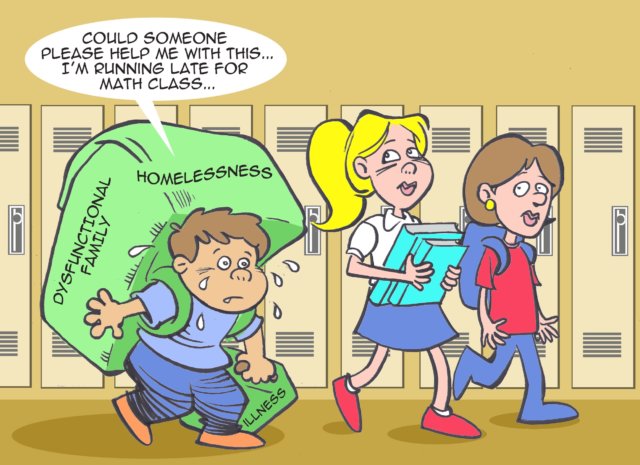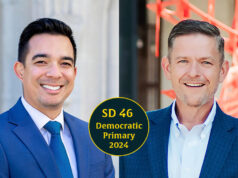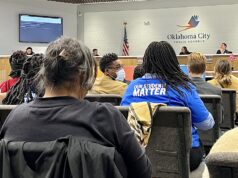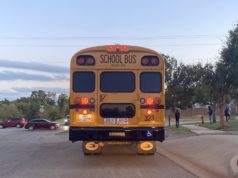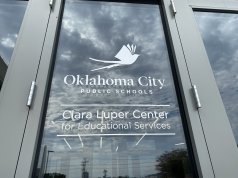
Eighteen years ago, the very survival of the Oklahoma City Public School System was at risk. That is why participants in MAPS for Kids put their political differences on hold, worked together to end a financial crisis and tried to improve teaching and learning. MAPS for Kids stressed outreach to students and site-based management. The MAPS motto was: None of us are as smart alone as we all are together.
The Oct. 23rd school board meeting illustrated the wisdom of that inclusive principle. The meeting showed what is right and what is misguided about today’s policies. The most important issues raised at the meeting concerned what it will take to meet the challenge of new state tests that raise the bar in terms of college-readiness instruction. Although district presenters made some good points, the administration seems basically on the same dubious path that undermines 21st-century teaching and learning.
‘New’ instructional blueprint looks like the old blueprint
To her credit, chief academic officer Lynn Barnes told the board that the new state tests, which showed dramatically low levels of proficiency, would require a “reset,” and that progress would take time. Barnes correctly said that the old instruction blueprint emphasized basic skills instruction and was a poor preparation for the actual tests, which require much more depth of knowledge and higher level mental processing.
RELATED
Oct. 23 OKCPS board meeting briefs by John Thompson
Unfortunately, Barnes’ answer seems to be a new blueprint, same as the old. Worse, she used the same simplistic rhetoric, implying that high expectations and “rigor” can drive improvement in OKC’s highest-challenge schools. Regardless of what the administrator means when pushing her new instructional guidelines, her continued embrace of cheap and easy silver bullets and the continued rhetoric that implicitly blames teachers make it unlikely that educators will listen to what she is trying to say. From what I hear, many or most OKCPS educators are likely to see the new blueprint the same as the old.
Quick-fix approach ignores overwhelming research
Worst still, Superintendent Aurora Lora’s statement state test scores sounds like the same quick-fix approach that produced a system where six of the seven English tests produced proficiency rates of 20 percent or less. Math scores were even lower. Given the challenges of teaching to new standards of instruction and the introduction of far more challenging state tests, it is important that the OKCPS respect the cognitive science that explains why Core Knowledge curriculum is a valuable tool for raising the bar on instruction.
As some of the nation’s top education experts advised MAPS for Kids, cognitive science explains why it’s hard or impossible to teach reading comprehension without incorporating background knowledge into the process. Core Knowledge founder E.D. Hirsch presciently predicted that the teach-to-the-test mindset that was imposed on the OKCPS (and districts across the nation) would teach students to decode short passages instead of reading for comprehension.
Yet, in her call for “more rigorous” instruction in our classrooms, Lora seems to claim that this mostly requires that the system “raise the level of expectations for student learning and the teaching.” In other words, she seems to reject the overwhelming body of cognitive and educational research that explains, while high expectations are important, curriculum- and instruction-driven policies are inherently inadequate for the challenges the OKCPS faces.
Success at Edgemere emphasize partnerships, supports
The OKCPS won’t make much real-world progress in meeting the new standards until it learns from the other science-based, humane approaches to schooling that were presented at the meeting. Patrons from Edgemere Elementary proclaimed the benefits of their “community school” and stressed the importance of partnerships to provide mentors and socio-emotional student supports.
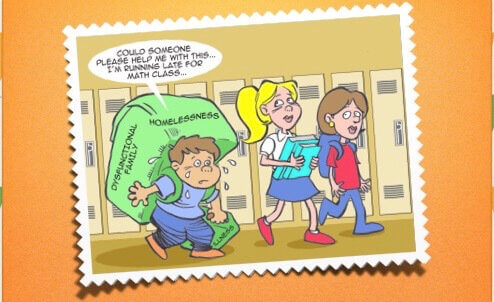
As the above cartoon indicates, students who carry an enormous burden due to homelessness, family crises or physical and mental illnesses are unlikely to master advanced math. This graphic was actually removed from Edgemere’s presentation. Veteran volunteer Kelly Pearson protested to the board, saying that she learned at the last minute that the cartoon, drawn by respected graphic artist Steve Hill, who is OKC Mayor Mick Cornett’s chief of staff, was deleted. Board member Mark Mann later said that he had seen the cartoon but did not think it was offensive.
The OKCPS has chosen not to comment at this time on the removal of the cartoon from Edgemere’s presentation.
OKCPS must relearn how to listen
Unfortunately, this brings us back to the MAPS for Kids admonition: None of us are so smart that we don’t need to listen to others. During MAPS for Kids, I saw firsthand what can be accomplished when community stakeholders and education leaders listen to the students. I’m also one of many veteran educators who believes the cartoon nails the problem that OKCPS has failed to confront. District leadership is free to disagree, but it shouldn’t duck a fact-based discussion of what it will take to measure up to higher standards. If district leaders have evidence that their approach to instruction would help students, they should present it in an open debate. Under no circumstances should it disrespect the serious and sincere positions of the district’s partners.
OKCPS must relearn how to listen to stakeholders. If it would once again welcome an open dialogue on policy, other stakeholders might embrace some or many of its policies. If the administration would present its case to the community, the collaborative conversation could likely make its plans better. Divided, we will fail. Together, we can pull the community’s strengths that were on display Oct. 23 and make the system better.









